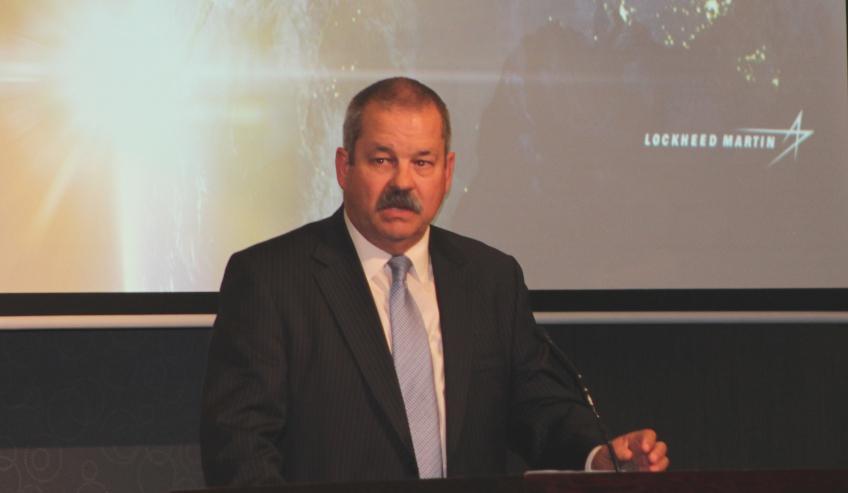Senior leaders from Australia’s space industry, government and academic communities convened in Canberra to expand the dialogue around establishing a national space agency for Australia.
Hosted by Lockheed Martin Australia, in partnership with the Australian Strategic Policy Institute and the Space Industry Association of Australia, the Securing Australia's Space Industry Forum 2017 explored key opportunities and challenges for the realisation of a national space agency, the formation of which was announced by the federal government during the recent International Astronautical Congress in Adelaide.
Rod Drury, managing director, Lockheed Martin Australia Space Systems Company and key speaker at the forum reaffirmed Lockheed Martin’s commitment to facilitating formative, high-level discussions between industry, government and academia in support of realising a national space agency for Australia.
"The government’s announcement of a national space agency that will provide clear, consistent leadership on space was resoundingly welcomed by Australia’s space community," Drury said.
"It is critical that Australian industry, government and academia work together to ensure that agency has the capabilities and capacity necessary to support the sustainable growth of our burgeoning space industry by advancing technology innovations and furthering scientific discovery."
Defence Connect sat down with Drury at IAC2017 to discuss the company's plans for expanding its footprint in the Australian space industry, with Drury flagging increased opportunities in space awareness, IT network management and the collection and collation of data by various space-based sensors.
"Lockheed Martin Space Systems Company has been active for about 20 years in Australia and we have a number of different products and services that we deliver today, ranging from the Uralla TT and C facility in northern NSW, where we monitor the health of various spacecraft and payloads, provision of services to the Australian Geospatial Organisation and other Defence related activities," said Drury.
"The direction LM is currently headed is based on our combination of our current projects and our future plans for investing in a number of R&D activities with several Australian universities and small-medium enterprises."
Their investment in locally generated ground-based space situational awareness (SSA) capabilities will see Lockheed Martin and its Australian SME partner Electro Optic Systems collect, collate and deliver SSA data that is more precise and more accurate than currently available through commercial sources.
"The SSA sensors will collect very high-end, very precise, ground-based space situational awareness data and our business model is to make that data available to either government or commercial customers," Drury explained.
"Potentially, should the business case conditions exist, then we would further develop the SSA network so that we have a number of those sensor nodes in various locations – all contributing very unique and accurate data, and we believe that there is significant demand for that data service."
Lockheed Martin is also currently working with the Geoscience Australia to undertake a test bed project to prove their satellite-based augmentation systems (SBAS) – ultimately, the key outcome of this test program is to improve navigation signals for defence, government or commercial customers.
The Securing Australia’s Space Industry Forum 2017 featured a keynote from Dr Megan Clark AC, FTSE, chair of the Expert Reference Group, Space Industry Capability Review, followed by a panel discussion featuring some of Australia’s leading space industry commentators, including: Peter Jennings PSM, executive director of the Australian Strategic Policy Institute; Air Vice Marshal (Ret'd) Mark Skidmore AM, chairman of Skykraft; Michael Pakakis, director of the Victorian Space Science Education Centre; and Solange Cunin, founder and CEO of Cuberider.



